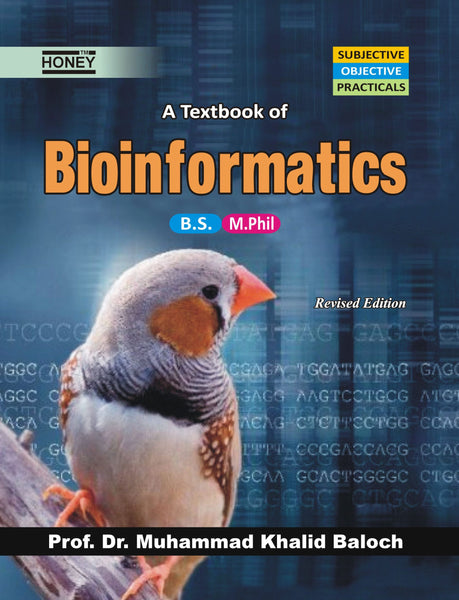Principles of Virology: Molecular Biology 5th Edition by Jane Flint (Author)
- Publisher: BIOLOGY
- Availability: In Stock
- SKU: 51060
- Number of Pages: 608
Rs.2,590.00
Rs.3,695.00
Tags: Anna Marie Skalka , antiviral strategies , best books , Best Price , Best Selling Books , DNA viruses , emerging viruses , gene therapy , Glenn F. Rall , Jane Flint , molecular virology , ONLINE BOOKS , Online Bookshop , Principles of Virology , Principles of Virology: Molecular Biology , RNA viruses , Theodora Hatziioannou , Vincent R. Racaniello , viral diseases , viral genetics , viral genome , viral infections , viral lifecycle , viral load , viral pathogenesis , viral replication , viral therapies , viral transmission , Virology , virology principles , virology research , virology techniques , virus detection , virus evolution , virus structure , virus-host interactions
Principles of Virology: Molecular Biology, 5th Edition by Jane Flint, Vincent R. Racaniello, Glenn F. Rall, Theodora Hatziioannou, and Anna Marie Skalka is a comprehensive textbook that provides a detailed understanding of virology, particularly focusing on the molecular mechanisms underlying viral infections. This edition is an essential resource for students and professionals in the fields of microbiology, molecular biology, and virology. It covers a wide range of topics, from the structure and function of viruses to the complex interactions between viruses and their hosts. The book delves into the molecular biology of viruses, including their replication, gene expression, and evolution. It also explores viral pathogenesis, host immune responses, and the latest advances in antiviral therapies. In addition, the text emphasizes the importance of viruses in biotechnology and medicine. The 5th edition incorporates up-to-date research, new chapters on emerging viruses, and discussions on modern techniques used to study viruses, such as next-generation sequencing. Its thorough coverage and integration of both basic and advanced concepts make it a valuable resource for those seeking an in-depth understanding of virology.
Key Points:
-
Viral Structure and Classification: The book provides a thorough introduction to the structure and classification of viruses, detailing their different forms, such as DNA and RNA viruses, and how they are categorized based on various structural and genetic characteristics.
-
Molecular Mechanisms of Viral Replication: It explains the molecular biology behind viral replication, including the processes of transcription, translation, and genome replication, with a focus on how viruses hijack host cellular machinery.
-
Viral Gene Expression: The text explores how viruses express their genes and regulate viral RNA and protein synthesis, including topics on host-virus interactions that influence viral gene expression.
-
Viral Evolution and Genetics: The book delves into the genetic diversity of viruses, their mechanisms of mutation, recombination, and evolution, and how these factors contribute to viral adaptation and resistance to antiviral treatments.
-
Viral Pathogenesis and Immune Response: It discusses the mechanisms by which viruses cause disease (pathogenesis) and how the immune system responds to viral infections, including both innate and adaptive immune responses.
-
Antiviral Therapies and Vaccines: The 5th edition includes updated information on antiviral drugs and vaccines, offering insights into the strategies used to combat viral infections and the latest developments in vaccine design and therapeutic interventions.
-
Emerging Viruses and Global Health: New chapters address emerging viruses and their impact on global health, with a particular focus on the ongoing challenges posed by pandemics and new viral diseases.
-
Modern Techniques in Virology: The book highlights the latest techniques used in virology research, including next-generation sequencing, CRISPR technology, and high-throughput screening methods that help in virus discovery and vaccine development.
-
Virus-Host Interactions: The relationship between viruses and their hosts is explored, emphasizing how viruses manipulate host cell machinery to replicate and how host cells respond to viral invasion.
-
Applications in Biotechnology and Medicine: The textbook highlights the importance of viruses in biotechnology, such as their use in gene therapy, and the role they play in medical research, diagnostics, and vaccine production.
Conclusion:
Principles of Virology: Molecular Biology, 5th Edition is an authoritative and indispensable text for anyone studying or working in the fields of virology, molecular biology, or microbiology. It offers a detailed and updated exploration of viral biology, from basic concepts to advanced research. By integrating fundamental principles with cutting-edge discoveries, the book provides a holistic view of viruses, their role in human health, and their potential in biotechnology and medicine. With its accessible yet detailed approach, it serves as an essential resource for both students and professionals in the field.
════ ⋆★⋆ ═══
Writer ✤
Jane Flint (Author), Vincent R. Racaniello (Author), Glenn F. Rall (Author), Theodora Hatziioannou (Author), Anna Marie Skalka (Author)

























